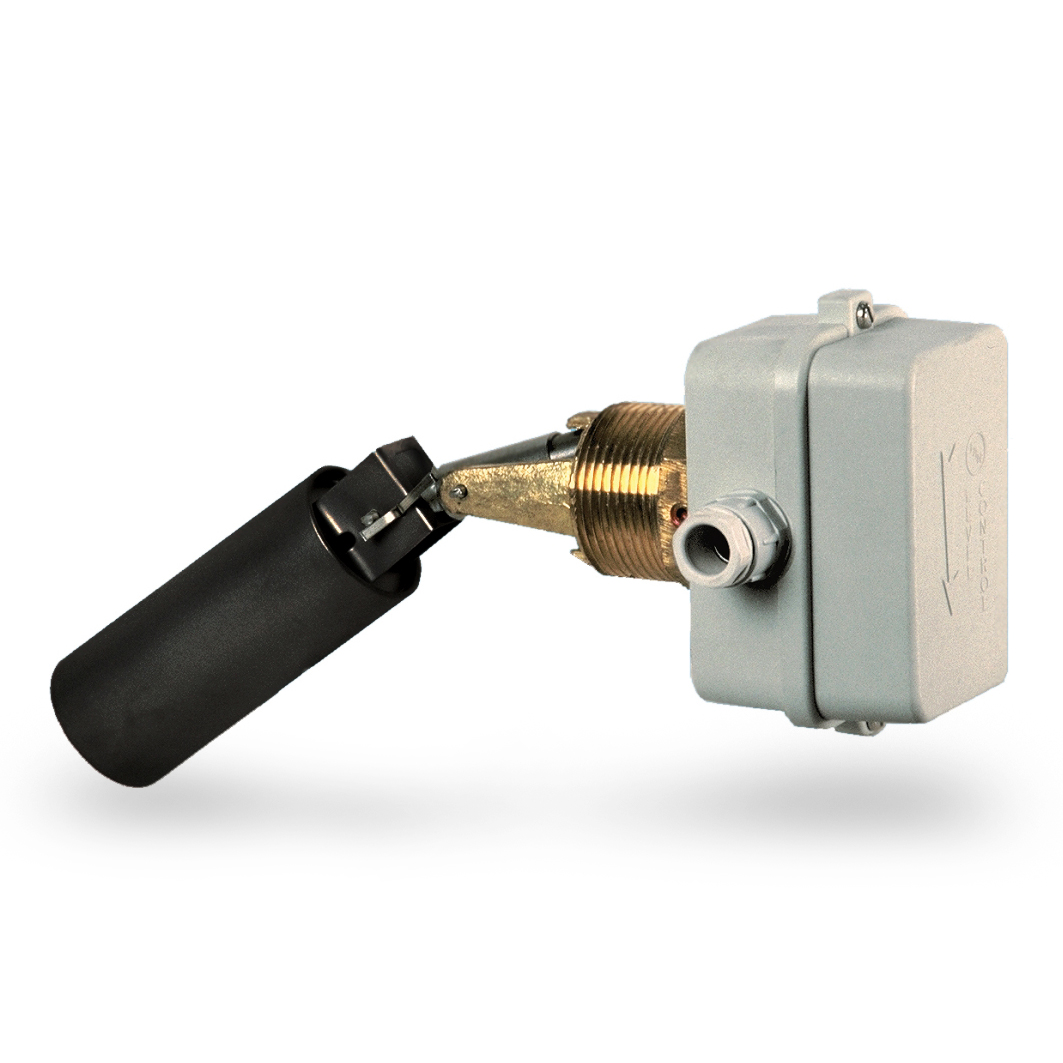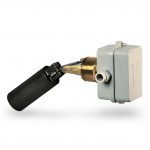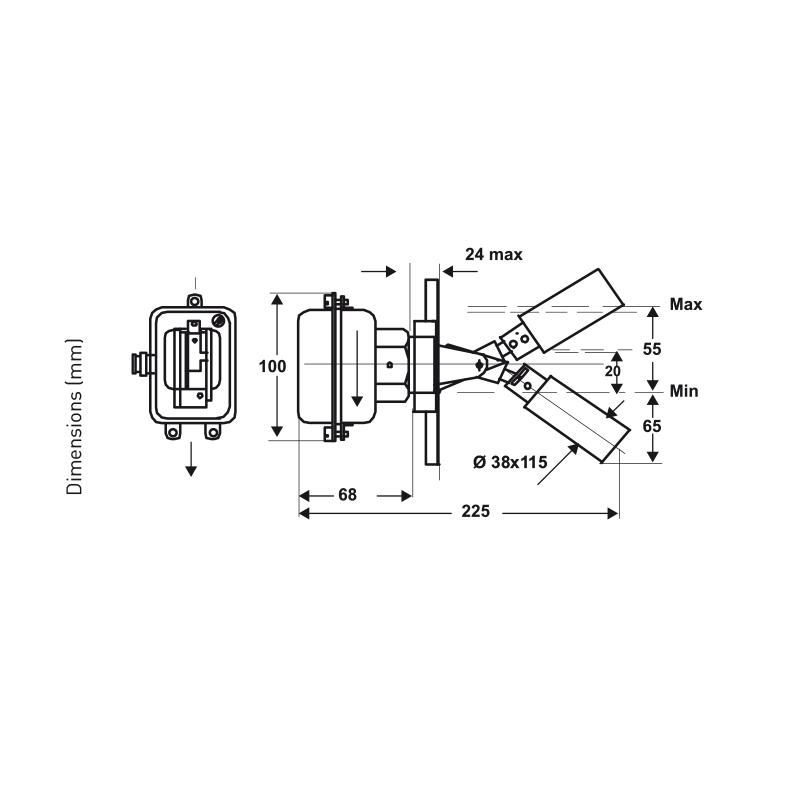Magnetic level controls for under pressure systems up to 10 bar
-
DESCRIPTION
General features0
Suitable to control and monitor the fluid level in open and under pressure tanks up to 10 bars.
Used in installations with autoclaves to control the filling pump or automatically restore the air vessel.
- Operation with magnetic action ( by repulsion with permanently opposed magnets)
- Suitable for liquids with specific weight from 0.9 to 1.1 kg/ dm3
- Threaded connection male G 1 ¼ , 36 mm spanner
- Shock- proof thermoplastic case with self-retaining screws
- Non- toxic thermoplastic resin float Ø38×70, on request with stainless steel float up to 110° C
- Choice between two fixed level differentials
- Brass body
- Compliance with the standards CEI EN 60947- 5- 1
Electric features- SPDT microswitch.
- Electrical connection with 6,35 Faston (supplied).
-
ADVANTAGES
0
Suitable to control and monitor the fluid level in open and under pressure tanks up to 10 bars.
Used in installations with autoclaves to control the filling pump or automatically restore the air vessel.
Advantages -
TECHNICAL SPECIFICATION
CODE FLOAT TYPE LEVEL DIFFERENTIAL MAXIMUM LIQUID TEMPERATURE MAXIMUM OPERATING PRESSURE CONNECTION PROTECTION DEGREE AD52 stainless steel Ø 38x70 mm 20 ÷ 55 mm 110 °C 10 bar G 1 1/4 IP54 AD52P non-toxic thermoplastic resin float Ø 38x70 mm 20 ÷ 55 mm 110 °C 10 bar G 1 1/4 IP54 * delivery time and minimum purchase quantity upon request thermoplastic resin float recommended for using to control the water with temperature not more than 85° -
HOMOLOGATION AND INSTALLATION
Homologation
- Conformity with CEI- EN 60947-5-1 standards.
Installation and use- AD52-AD52P Threaded connection male G 1 1/4 , 36 mm spanner
- AD52PS1 Threaded connection male G 1, 36 mm spanner
- Operation by means of repulsion of two permanent magnets in opposition.
- Controlled liquid must have a specific gravity from 0,9 to 1,1 kg/dm3.
- For drinking water control: the recommended maximum temperature it is 85°C.
- When level increases: C-NC opens, C-NO closes.
- TECHNICAL LITERATURE
-
FAQS







